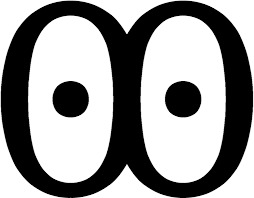


Earlier this year Associate Editor Jonathan Downie made the bold move of interviewing several members of the editorial board and distilling the information, stories, and rumor he got in the process down to a one-
You are a serious computational linguist (if such a thing exists). What made you first decide to contribute to SpecGram?
TJ: When I first discovered SpecGram, I was but a grad student in the linguistics department at Rice University
I’d been writing short humorous pieces about various subjects that have come up in my life since high school. So, in a sense I’d written for Speculative High School Student, Speculative Mathematician, and Speculative Computer Scientist before Speculative Grammarian, even though those publications, sadly, never existed.
So, of course, I couldn’t pass up the chance to have up to a dozen people reading my humorous linguistic scribblings. Tim was pretty happy, too, because I already had a few articles ready to submit, and I wrote a lot more, knowing I had an outlet for them.
You are often blamed/
TJ: SpecGram went into hiding/
I negotiated with Tim for the rights to SpecGram
I also enlisted all of the previous contributors to SpecGram (and earlier sister publications, Psammeticus Quarterly, Babel (not that one, the other one), and The Journal of the Linguistic Society of South-
As we got close to finishing the digitization process, I got really full of myself and decided I could promote myself to Managing Editor and we could publish new issues. Keith Slater was, in particular, very supportive early on, and has always been a good source of ideas and assistance. So, we did it, and the first new digital issue came out in January of 2004.
I would like to point out that I have never abandoned our roots, and SpecGram is still fundamentally a print publication. Every issue is in fact printed, bound, and distributed to our very, very exclusive group of print subscribers (again, less than two figures).
Could you explain what the SpecGram podcast and especially Language Made Difficult consist of and how they came about?
TJ: Around 2009 I started listening to more and more podcasts. It’s a fun way to pass the time when you are physically occupied but the language processing centers of your brain are not involved
Since I’m always looking for new ways to expand the SpecGram empire and bring our readers and fans more enjoyment, I decided we should try having a podcast. Being a tech savvy computational linguist (if such a thing exists), I knew I could handle the technical aspects of it.
At first I limited the podcast to article recordings because we have a steady supply of source material, and a reasonable number of volunteer readers (though we are always looking for more!).
David J. Peterson, conlanger extraordinaire, has always been one for overly outlandish ideas, and he originally envisioned the SpecGram podcast trying to become “The Daily Show of linguistics”. We shot him with four or five tranq darts, and once he’d calmed down enough we talked about what we could actually accomplish
On the other hand, I don’t think there’s really much contention for the title of “The Daily Show of linguistics”, so maybe we have achieved that goal, simply by virtue of a complete lack of competition.
Kids, learn that lesson well
There is now a book of some of the best SpecGram content. Could you explain how that came about?
TJ: Ah, yes, The Speculative Grammarian Essential Guide to Linguistics. (Now available in ebook-
It all started during the recording of Language Made Difficult. Between takes we were discussing the creeping deflation of what qualifies as publishing “creative works” in academia. In English departments, for example, publishing a book of essays or poetry certainly qualifies. What about blogging? Well, it might be better for the environment, but is it really creative writing of the right caliber?
Of course, we jumped to “What about writing for SpecGram?” No, probably not, especially not if you do it under a pseudonym. But what about editing a SpecGram book? That’s much more tangible than a mere blog, and no one can really put any boundaries on creative expression
It seemed like a good idea, so we did it. I got much better at distance collaboration with the other editors and contributors, and I got really good at cyberstalking people we hadn’t heard from, in some cases, for decades. It was a lot of work, especially for me since I had to format the whole thing
Does that make you a proper author now?
TJ: I’m tempted to say no, because the book is self-
Here in the UK, there is a debate over open access research, where scholars have to pay for their papers being published in journals. SpecGram has adopted an alternative model to support itself, could you explain this?
TJ: Yes, of course. SpecGram uses the Sugar Daddy Method of Financial Support.
I’ve been reasonably successful in my career as a computational linguist (if such a thing exists), and running a website isn’t all that expensive, so I pay for everything myself (with oversight from the Comptroller General). Everything else is done by volunteers, including our editorial board.
Other than that, the SpecGram book (now available in ebook-
Could you see any big scientific journals using that model too?
TJ: I’m not sure. Any journal attempting to do so would first have to find a Sugar Daddy who was sufficiently interested. Then the journal would probably have to drastically cut costs. At SpecGram we do that by using and abusing boatloads of interns. Eager, trusting, disposable interns.
SpecGram also regularly features student mistakes and cartoons. How have these been received by readers?
TJ: Both have gotten an outpouring of positive feedback.
Despite our best intentions, some of the cartoons we have published are actually educational, and we get periodic requests to include them in books or course materials. We usually agree, depending on the cartoon and whether we can track down the original author. They also get used without permission, especially by academics who should know better.
My favorite comment about the student pearls was from a couple of students who emailed me and closed with “We’ll try to stay out of ‘Things You Didn’t Know You Didn’t Know’ in the meantime!”
What kind of people do you think read SpecGram?
TJ: According to an online aggregator of demographic information I stumbled across once, the SpecGram website is particularly popular with middle-
I believe our readers are largely similar to our contributors and editors (except a little lazier, since they haven’t gone to the trouble to contribute anything). We’re all people who like linguistics, and enjoy light-
In addition to being a bit lazy, our readers are either insufficiently educated, or
Keeping grad students and undergrads in their place by making jokes they can’t understand. Life is good.
So, in summary, our readers are linguists and linguistics-
Arguably, SpecGram really came into public consciousness with the campaign for the nasal-
TJ: I’m very proud to say that the nasal- ), that has two dots in it, and looks very much like a double-
), that has two dots in it, and looks very much like a double- ), dual monocular (
), dual monocular ( ), and multiocular (
), and multiocular ( ) variants. That’s a lot of creepy eyes staring up at you from a manuscript.)
) variants. That’s a lot of creepy eyes staring up at you from a manuscript.)
When a proto-
So, one day I wrote “nasal-
I’m happy to report that the phrase “nasal-
Finally, since you’ve given me this platform to spout off about the nasal-
What effect(s) do you think SpecGram has had on the linguistics community as a whole?
TJ: I hope SpecGram has encouraged the linguistics community to take themselves a lot less seriously. The politics of linguistics has occasionally been fairly ugly, and it’s been that way for a long time. Being able to poke fun at those in power, and at ourselves, relieves a good bit of stress.
Have any of your colleagues ever reacted (positively or negatively) to one of your SpecGram pieces?
TJ: You mean my real-
Fortunately I haven’t ever had a notably negative reaction to a piece. I have a handful of times had people tell me about some funny linguisticky thing they found on the internet, only to discover that it was something I wrote. I find that hilarious.
My favorite positive story involves going to an interview and discovering that my potential new boss had one of my SpecGram cartoons posted on his door. I did get a job offer, and I’m sure knowing I had a reasonable sense of humor helped.
What is your favourite linguistics area to satirise and why?
TJ: Historically, sociolinguistics has been the go-to satirical whipping boy, though recently documentary linguistics has been subbing in from time to time. Honestly, though, I never really liked poking fun at either of them. But it’s good to have a fall-
My favorite, though, is syntax. Partly it’s because they seem to sit at the top of the academic hierarchy within linguistics. Partly it’s because in my job as a computational linguist (if such a thing exists), I am regularly confronted with the failure of mainstream syntax to generate much of anything that’s encodable as an algorithm
SpecGram recently celebrated its tenth online year. What do you think are the reasons for its longevity?
TJ: The Sugar Daddy Method of Financial Support, coupled with the SpecGram Editorial Board’s ability to keep me from completely losing my mind by way of their help and support. They don’t really have much incentive to keep me wholly sane
More generally, the increased popularity of SpecGram over the years has been a major force in keeping us going. Of course it’s great to get email or read online comments from people who like SpecGram, but as we get more exposure, we get more victims disposable interns volunteers to help do all the heavy lifting.
Lastly, if you could pick any linguist, alive or dead, and poke them until they wrote a SpecGram piece, who would it be and why?
TJ: Wow, that’s a hard question to answer, even for a serious computational linguist (if such a thing exists) like me.
Rasmus Rask is the patron saint of Satirical Linguistics
It might be fun to poke Chomsky with a stick, but I don’t think he’s constitutionally capable of being funny, so nothing good would come of it.
Stephen Pinker and Daniel Everett seem like nice guys, each with a reasonable sense of humor, and practically speaking, their fame would likely rub off on SpecGram in a positive way if either wrote a funny piece for us. It might melt the SpecGram servers, though.
Would it be too much of a cop-
So, at this point, I’ve basically verbally flailed around a lot while pretty much failing to answer the question. That is the SpecGram way.
More to come...